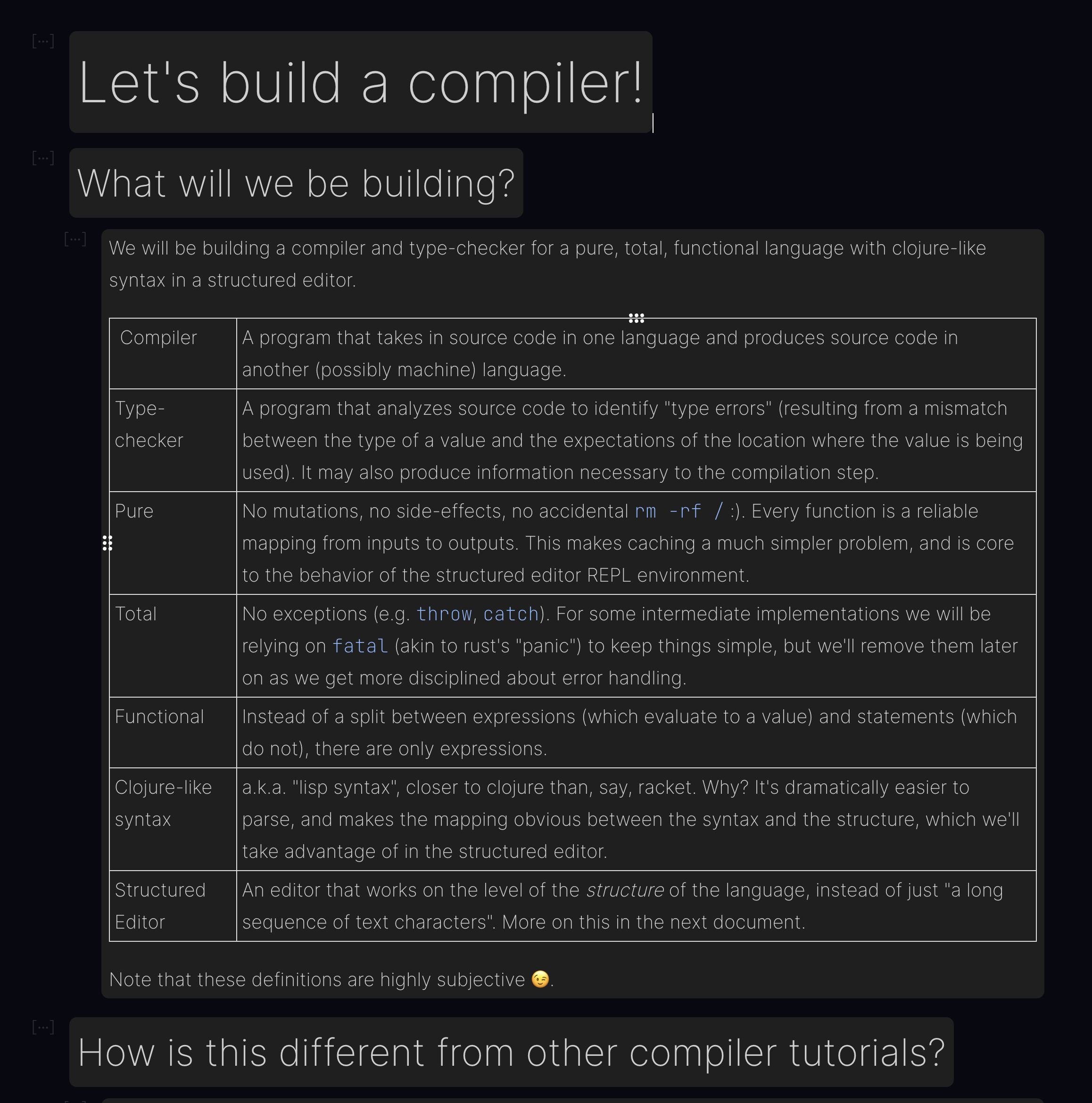💻 Bend: a parallel language 🎥 New Graphical Programming Language for Audio Research & Developers 💡 The Alternative Implementation Problem
Our Work
🪩 Exploring Spaces 4: Sphere via Elliot
I've made an article about 🌐 spheres and input spaces that wrap around like spheres 🌐. Let me know how it feels to move around the spheres. Does the way they are synchronized make sense? vezwork.github.io/polylab/dist/demo/articles/exploring_spaces_4




[ ] Change Month and Week Number
[ ] focWeekExport "2023-01-19" "2023-01-26"
[ ] Update Search Index
[ ] Download New Attachments
[ ] Update links
[ ] Check that comment links work (push weekly dump with channel summaries)
[ ] Check to mention right person for moved messages
[ ] Summary
[ ] Hashtags
[ ] Set title in newsletter
https://tinyletter.com/
https://tinyletter.com/marianoguerra/letters/
http://localhost:8000/history/
https://marianoguerra.github.io/future-of-coding-weekly/
https://stackedit.io/app#